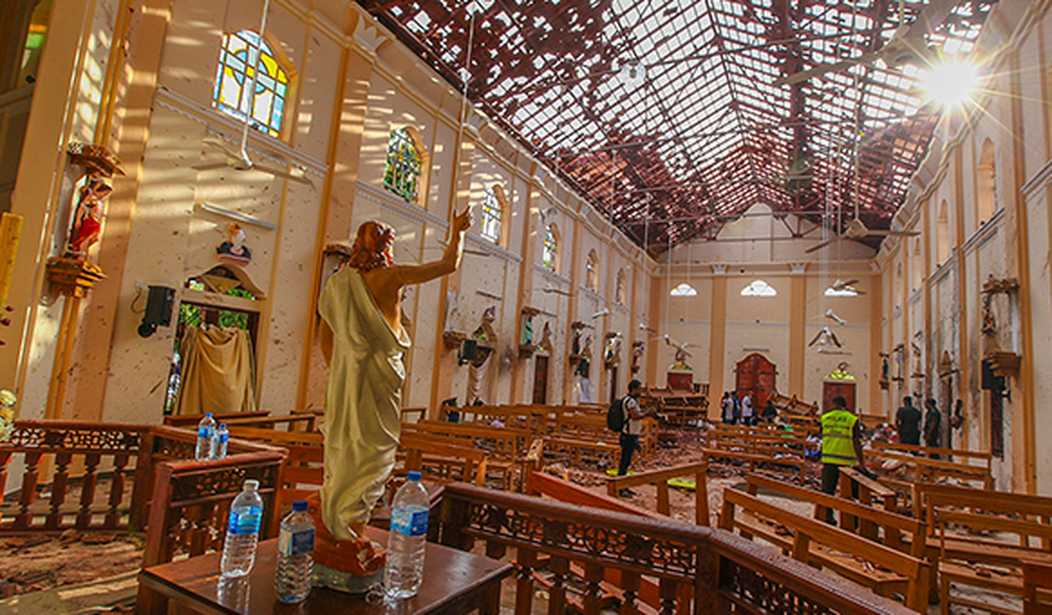For the first time in the lives of many American Christians, routine was interrupted as church services were canceled across the country to prevent the spread of coronavirus. Many churches chose to broadcast online instead. Some churches are getting creative and organizing “drive-in” worship services. Rarely are Christians in the West faced with external pressures that affect our weekly public worship gatherings. This inconvenience—and the fear that surrounds it—may give us a glimpse into what many Christians around the world face as they are forced to worship in hiding, and as their worship services are curtailed due to intense external pressure.
In many parts of the world, Christians are regularly forced to worship in small groups, at home, or alone. The cancelation or online streaming of American church services in order to prevent the spread of COVID-19 doesn’t compare to the life-threatening situations the persecuted church may face on a weekly basis. Yet, this abnormal situation is enough to cause us to stop and think about the worship experiences of our fellow believers across the globe – and it may help us feel more of a kinship with them going forward.
In Iran, conversion to Christianity from the official state religion of Islam is illegal, so new Christians who are not a part of the historic Assyrian or Armenian churches must gather in small groups in homes, defying the law. Open Doors’ 2020 World Watch List reports that “Severe surveillance of house-churches leads to increasing fear among those attending.” One Christian ministry leader in Iran told International Christian Concern, “The regime specializes in fear,” and “they make you look over your shoulder.”
While Christians in Iran fear surveillance and imprisonment in brutal conditions, Christians in Nigeria face a possible genocide slowly ramping up. The terrorist group Boko Haram and Fulani militants have been attacking Christian homes, villages, and churches for years. Christians are slaughtered in the most brutal ways—shot, hacked with machetes, and set on fire.
In February, five Nigerian churches were destroyed in the northeastern state of Adamawa. One of the Christian villages which was attacked saw around one hundred Boko Haram militants ride in on motorcycles to destroy their homes and churches. At first, villagers tried to fight back, but they were soon forced to flee into the bushes as their town went up in smoke. This community is one of many across Nigeria to have church services as they know it interrupted because their church building was attacked. Elsewhere in Nigeria, church elders gathered for a Sunday service in their burnt church building, recently attacked by Boko Haram.
Recommended
These are just a few of the situations Christian communities around the world face when simply trying to live out their faith and gather together at church. Christians in China, North Korea, Pakistan, India, and elsewhere all face threats of their own.
The experience many American Christians are having isn’t the same as the experiences of the persecuted church. But it gives us a small taste of what it might be like to be unable to physically go to church, a practical problem many Christians encounter in Iran, Nigeria, and many other countries. The emerging use of livestreaming technology to conduct services here helps us see what it is like for Iranian Christians whose only church experience has been an online chatroom. When we pause and reflect on this occurrence, which is unlike anything many of us have seen in our lifetimes, let us also remember our brothers and sisters in Christ around the world who are forced to worship in places other than traditional church buildings.
In the United States, we're blessed to have a strong tradition of religious freedom. Many churches aren’t physically gathering in order to protect people, especially those most vulnerable to the coronavirus. Christians in other countries don’t have this freedom, and are forced to “meet” using technology on a regular basis. While we pray for our nation as we face the threat of a new virus, let us also pray for the persecuted church around the world who face threats of their own.
Arielle Del Turco is FRC’s Assistant Director of the Center for Religious Liberty.

























Join the conversation as a VIP Member